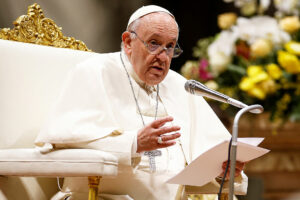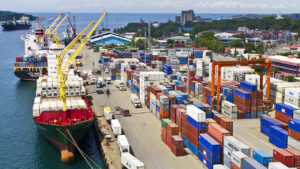Human-centered approach to work

(Part 1)
In the ILO report on “The Future of Work in the Philippines,” it was clearly stated that an ILO Declaration issued a call to action for “a human-centered” approach for the future of work that focuses on increasing investment in people’s capabilities, strengthening the institutions of work, and promoting sustained, inclusive and sustainable economic growth, and full and productive employment and decent work for all.” The report focused on the effects of digital technologies, in particular the adoption of artificial intelligence in the workplace, as regards disruption and transformation on occupations and their implications for sectors and skills development approaches in the Philippines. It mapped and assessed existing national policy responses and initiatives related to Industry 4.0 in the Philippines and collected information on current upskilling policies and programs.
While reading the report, I got the impression that, despite the good intention of taking a human-centered approach, somewhere along the way the focus turned to technology, especially the innovations related to what is called Industry 4.0, such as Artificial Intelligence, Robotics, Internet of Things, and Data Analytics. It was assumed that the Philippines should strive to be at the same stage of Industry 4.0 as other more advanced economies which have gone much beyond the low-upper middle-income stage, which the Philippines is still struggling to leave behind, and which have reduced their poverty incidence to zero- or single-digit levels as compared to the almost 20% poverty incidence in the Philippines. Much importance was given to digitalization as becoming pervasive in all sectors and occupations of the economy. The idea is that digitalization could render tasks or occupations previously carried out by human workers obsolete — “destructive digitalization.” In the same vein, exposure to new technologies could transform existing occupations — “transformative digitalization.” This line of reasoning assumes that it should be the workers that necessarily have to adapt to technology rather than technology adapting to the types of workers the Philippines can reasonably turn out in the next 10 to 20 years.
I take the position that there is no need for the Philippines to fully be part of the existing “global value chain.” Only those countries that are heavily dependent on exports for economic growth have to be ready for the “emergence of new, more sophisticated and advanced technologies that are seen to trigger structural changes in global value chains (GVC) such as selective reshoring, nearshoring, more distributed value activity and greater competition for skills specific to certain GVC segments.” I maintain that the large domestic market of the Philippines, based on a population growing towards 150 million people in the next two decades, will be the main engine of growth of the economy. We have to export only to the extent of having to supplement the foreign exchange earnings that we receive from the Overseas Filipino Workers (OFWs), the BPO-IT (which is part of Industry 4.0) and the very promising tourism sector, which, despite digitalization, will continue to be labor-intensive. The warm smiles and soft skills of the Filipinos and Filipinas cannot be digitalized.
To refocus our attention towards the human person in planning the economy of the future, it would be useful to borrow some basic principles about the essence of human work from Catholic social doctrine. The one who wrote extensively on the philosophy and theology of work was St. John Paul II. In his encyclical letter entitled “Laborem Exercens” (On Human Work), St. John Paul II defines work as “any activity by man, whether manual or intellectual, whatever its nature or circumstances; it means any human activity that can and must be recognized as work, in the midst of all the many activities of which man is capable and to which he is predisposed by his very nature, by virtue of humanity itself. Man is made to be in the visible universe and image and likeness of God himself, and he is placed in it in order to subdue the earth. From the beginning therefore he is called to work. Work is one of the characteristics that distinguish man from the rest of creatures, whose activity for sustaining their lives cannot be called work.”
According to Christian social doctrine, work — in whatever form — is very much part of the reason for man’s existence on earth. God created man for him to work, to “subdue the earth.” In a homily that he delivered on May 1, 2020 (Feast of St. Joseph), Pope Francis said that “work is none other than the continuation of God’s work: human work is man’s vocation received from God at the end of the creation of the universe… Work makes the human person similar to God, because with work man is a creator, capable of creating many things; also of creating a family to raise. The human person is a creator, and creates through work. This is his vocation, and it says in the Bible that ‘God saw all He had made, and indeed it was very good’ (Gen 1:31). That is, work has goodness within itself and creates the harmony of things — beauty, goodness — and involves man in everything: in his thought, his actions, everything. Man is involved in work. It is man’s first vocation: to work. And this gives dignity to man. The dignity that makes him resemble God. The dignity of work.”
In his homily, he told the story of a businessman who telephoned him (at the height of the pandemic). This employer was asking for prayers from the Pope so that he would not be obliged to lay off any of his workers, saying “Because to lay off one of them is like firing myself.” The Pope praised employers like him who are good, who take care of their employees as if they were their own children. He asked his listeners to pray to St. Joseph that he might help all to fight for the dignity of work, so that there may be work for everyone, and that the work may be dignified, not slave labor.
In the last century, a towering figure in the Catholic church who taught most eloquently about the essence of human work was St. Josemaria Escriva, Founder of Opus Dei. In a homily he delivered, also on the feast of St. Joseph, entitled “In St. Joseph’s Workshop,” St. Josemaria made it very clear that “Work is part and parcel of man’s life on earth. It involves effort, weariness, exhaustion: signs of the suffering and struggle which accompany human existence and which point to the reality of sin and the need for redemption. But in itself work is not a penalty or a curse or a punishment: those who speak of it that way have not understood sacred Scripture properly… It is time for us Christians to shout from the rooftops that work is a gift from God and that it makes no sense to classify men differently, according to their occupation, as if some jobs were nobler than others. Work, all work, bears witness to the dignity of man, to his dominion over creation. It is an opportunity to develop one’s personality. It is a bond of union with others, the way to support one’s family, a means of aiding in the improvement of society in which we live and in the progress of humanity… And moreover, since Christ took it into his hands, work has become for us a redeemed and redemptive reality. Not only is it the background of man’s life, it is a means and path to holiness. It is something to be sanctified and something which sanctifies.”
To further elaborate on the relationship between the human person and technology, St. John Paul II, in the encyclical “On Human Work,” distinguishes between the objective and the subjective sense of work. At the objective level, there is reason to classify work according to the degree by which man “subdues the earth” through his higher spiritual faculties. As St. John Paul wrote: “Man dominates the earth by the very fact of domesticating animals, rearing them and obtaining from them the food and clothing he needs, and by the fact of being able to extract various natural resources from the earth. But man ‘subdues the earth’ much more when he begins to cultivate it and then to transform its products; adapting them to his own use. Thus agriculture constitutes through human work a primary field of economic activity and an indispensable factor of production. Industry in its turn will always consist in linking the earth’s riches — whether natures’ living resources or the products of agriculture, or the mineral or chemical resources — with man’s work, whether physical or intellectual. This is also in a sense true in the sphere of what are called service industries, and also in the sphere of research, pure or applied.”
Technology is what embodies the use of the higher faculties of man, not only his physical prowess as was the case before the First Industrial Revolution, which was the increasing use of machines that significantly increased the productivity of human work. As St. John Paul wrote: “The development of industry and of the various sectors connected with it, even the most modern electronics technology, especially in the fields of miniaturization, communications and telecommunications and so forth, shows how vast is the role of technology, that ally of work that human thought has produced, in the interaction between the subject and object of work. Understood as a whole set of instruments which man uses in his work, technology is undoubtedly man’s ally… It facilitates his work, perfects, accelerates and augments it. It leads to an increase in the quantity of things produced by work, and in many cases improves their quality.”
There is a downside, however, to technology. It can cease to be man’s ally and become almost his enemy, as when the mechanization of work “supplants” him, taking away all personal satisfaction and the incentive to creativity and responsibility, when it deprives many workers of their previous employment, or when, through exalting the machine, it reduces man to the status of its slave.
St. John Paul II rightly points out that the phrase “subdue the earth” in today’s digital world includes a relationship with technology, and in today’s terminology, both hardware (machines) and software. Some very important questions have to be raised. These questions are particularly charged with content and tension of an ethical and social character.
(To be continued.)
Bernardo M. Villegas has a Ph.D. in Economics from Harvard, is professor emeritus at the University of Asia and the Pacific, and a visiting professor at the IESE Business School in Barcelona, Spain. He was a member of the 1986 Constitutional Commission.



![Photo of [B-SIDE Podcast] High stakes: a recovering addict’s journey](https://redstateinvestings.com/wp-content/uploads/2022/06/06.06.22-B_Side_Gambling_1400x1400-300x300-5iu0Xx-300x220.jpeg)
